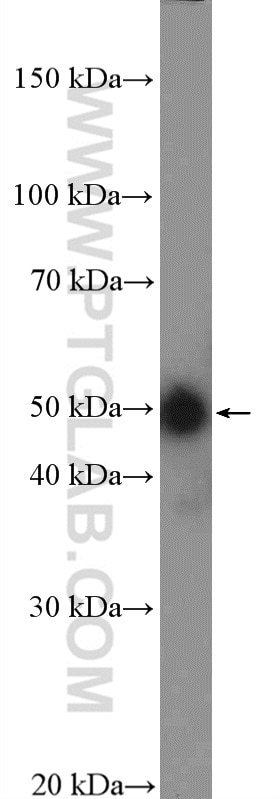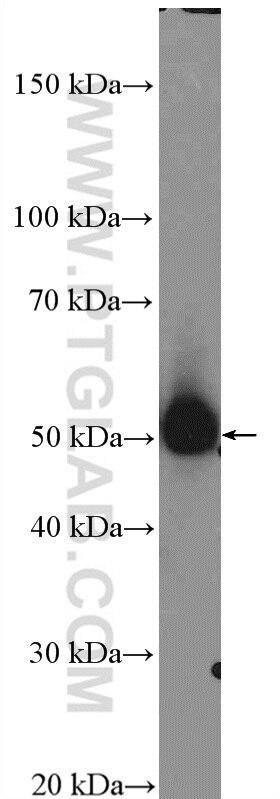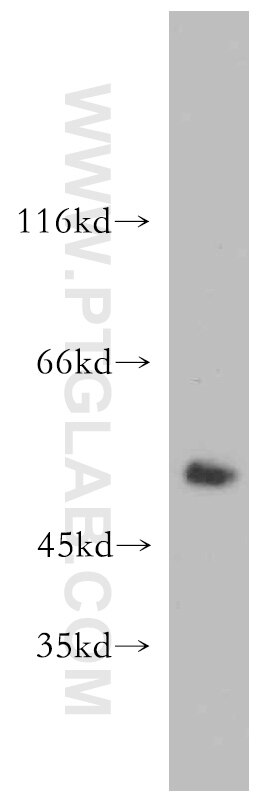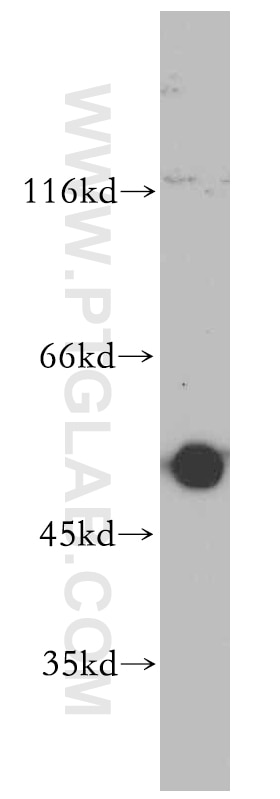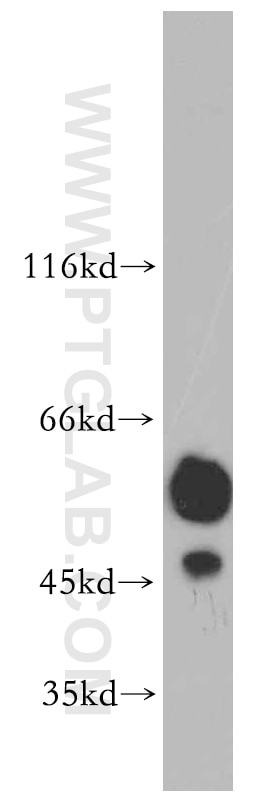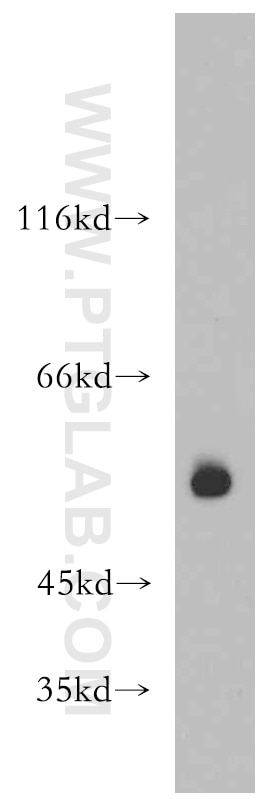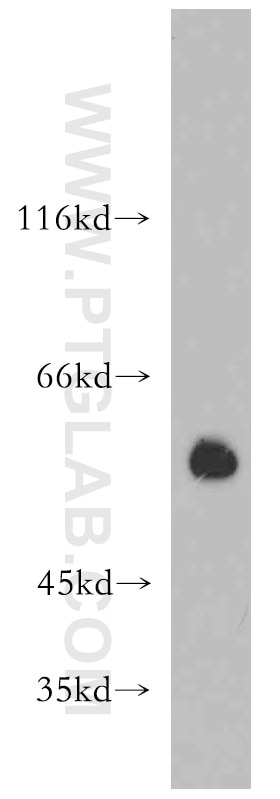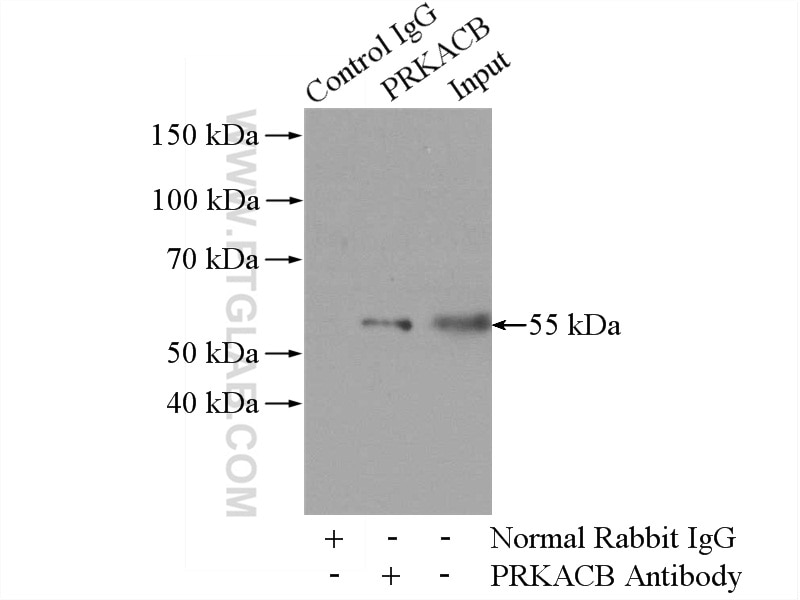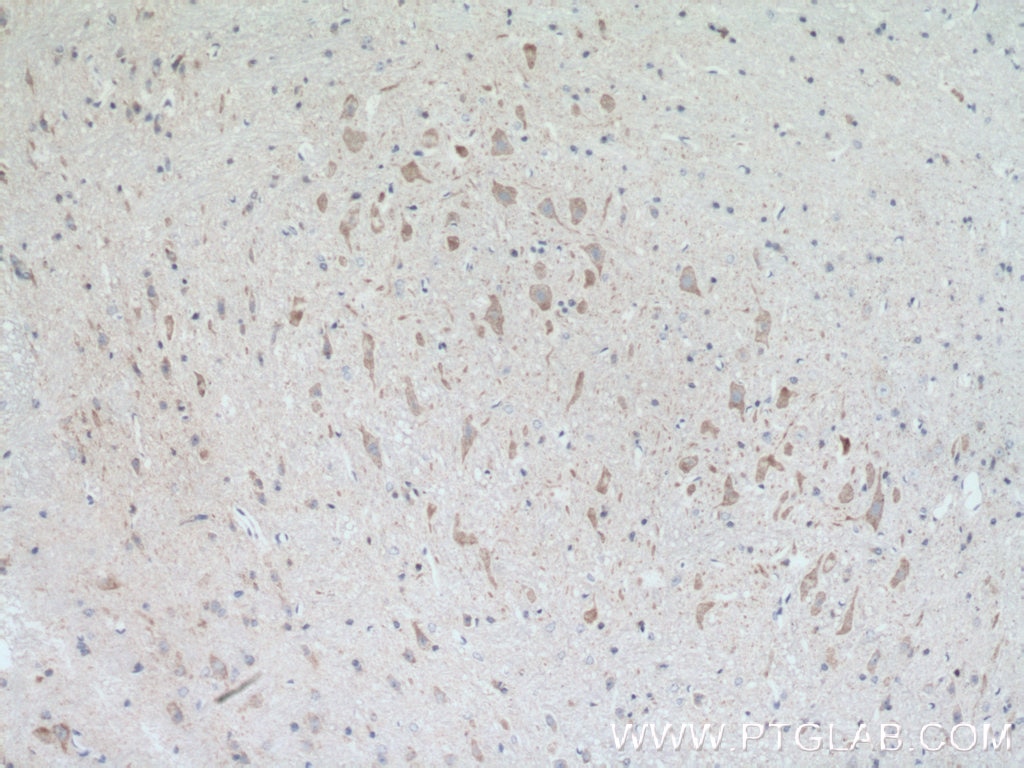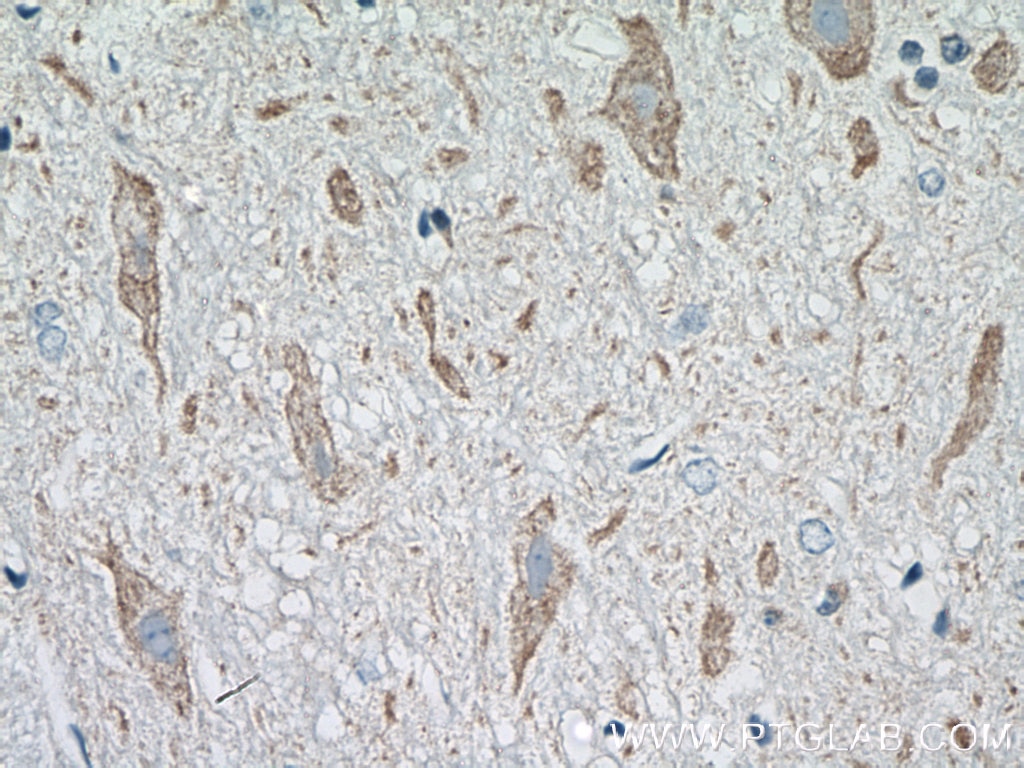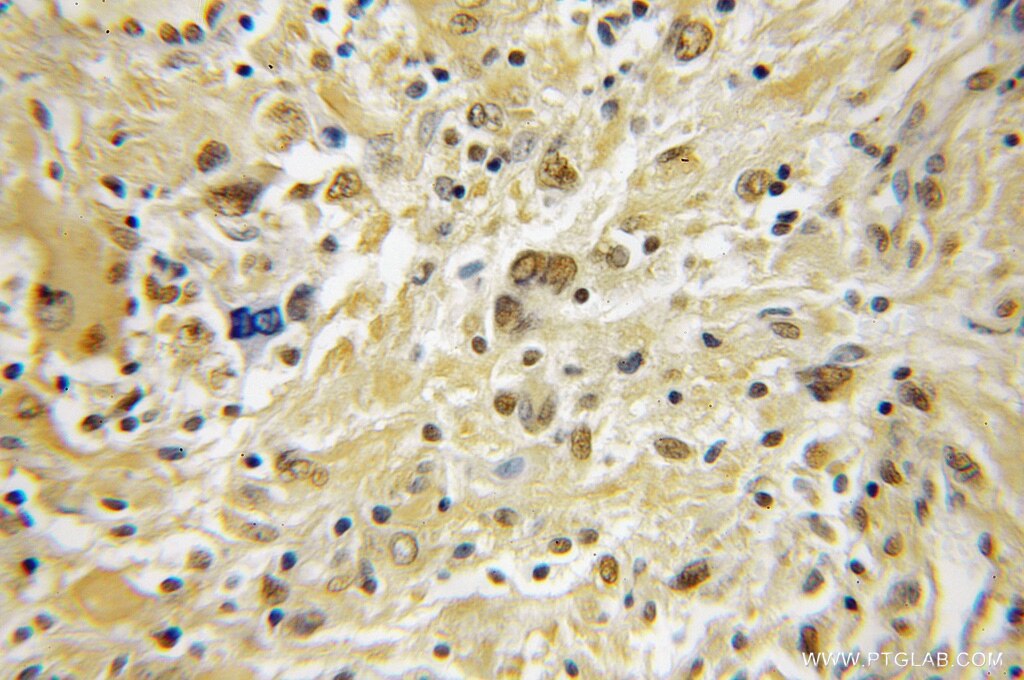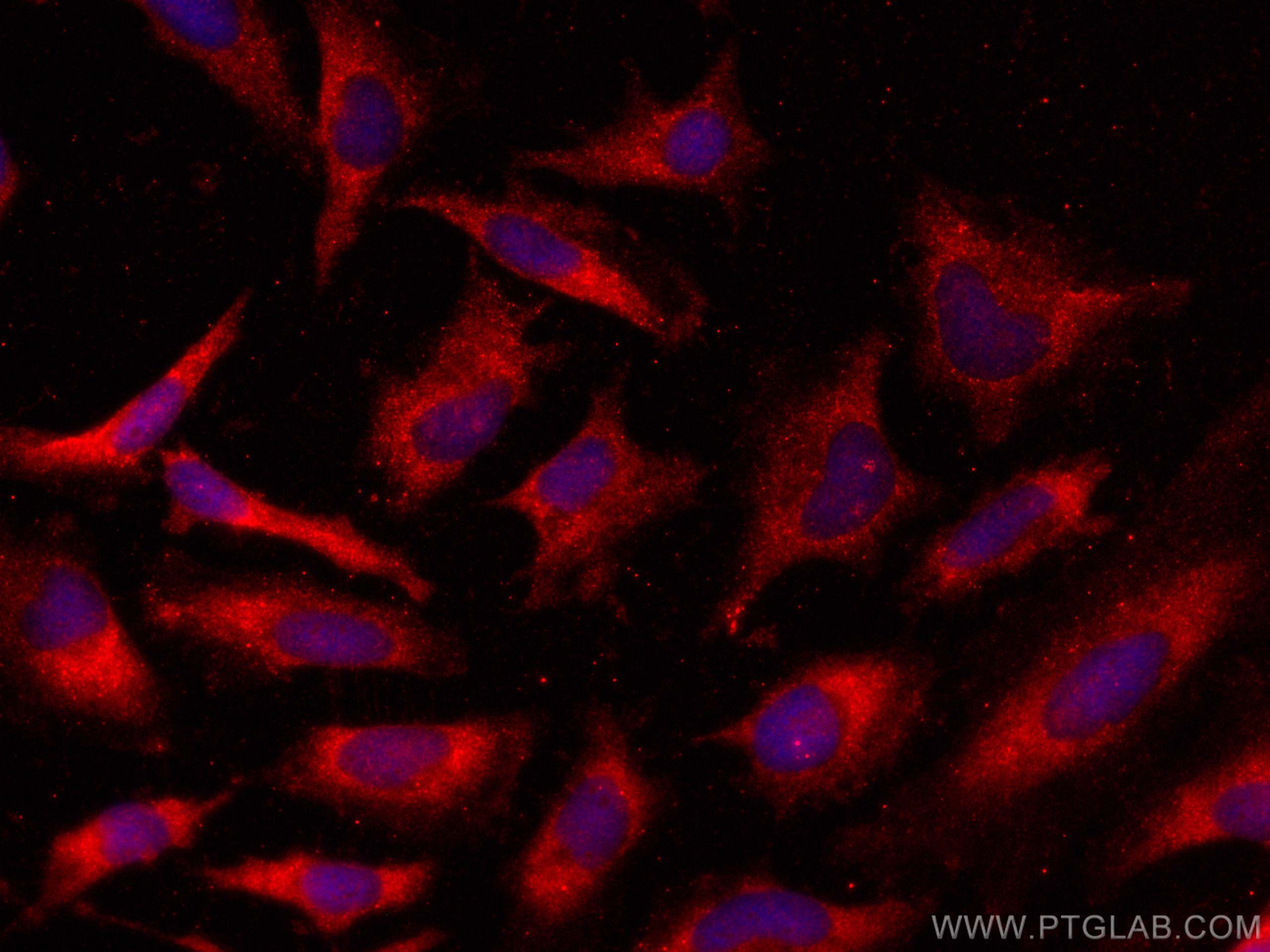Tested Applications
| Positive WB detected in | MCF-7 cells, A549 cells, HT-1080 cells, mouse brain tissue, mouse heart tissue, PC-3 cells |
| Positive IP detected in | mouse brain tissue |
| Positive IHC detected in | mouse brain tissue, human medulloblastoma tissue Note: suggested antigen retrieval with TE buffer pH 9.0; (*) Alternatively, antigen retrieval may be performed with citrate buffer pH 6.0 |
| Positive IF/ICC detected in | HeLa cells |
Recommended dilution
| Application | Dilution |
|---|---|
| Western Blot (WB) | WB : 1:500-1:1000 |
| Immunoprecipitation (IP) | IP : 0.5-4.0 ug for 1.0-3.0 mg of total protein lysate |
| Immunohistochemistry (IHC) | IHC : 1:50-1:500 |
| Immunofluorescence (IF)/ICC | IF/ICC : 1:50-1:500 |
| It is recommended that this reagent should be titrated in each testing system to obtain optimal results. | |
| Sample-dependent, Check data in validation data gallery. | |
Published Applications
| WB | See 5 publications below |
| IHC | See 1 publications below |
| IF | See 1 publications below |
| IP | See 1 publications below |
Product Information
12232-1-AP targets PRKACB in WB, IHC, IF/ICC, IP, ELISA applications and shows reactivity with human, mouse, rat samples.
| Tested Reactivity | human, mouse, rat |
| Cited Reactivity | human, mouse, rat |
| Host / Isotype | Rabbit / IgG |
| Class | Polyclonal |
| Type | Antibody |
| Immunogen | PRKACB fusion protein Ag2870 Predict reactive species |
| Full Name | protein kinase, cAMP-dependent, catalytic, beta |
| Calculated Molecular Weight | 41 kDa, 46 kDa |
| Observed Molecular Weight | 36-55 kDa |
| GenBank Accession Number | BC016285 |
| Gene Symbol | PRKACB |
| Gene ID (NCBI) | 5567 |
| RRID | AB_2170177 |
| Conjugate | Unconjugated |
| Form | Liquid |
| Purification Method | Antigen affinity purification |
| UNIPROT ID | P22694 |
| Storage Buffer | PBS with 0.02% sodium azide and 50% glycerol , pH 7.3 |
| Storage Conditions | Store at -20°C. Stable for one year after shipment. Aliquoting is unnecessary for -20oC storage. 20ul sizes contain 0.1% BSA. |
Background Information
PRKACB, also named as PKA C-beta, belongs to the protein kinase superfamily. AGC Ser/Thr protein kinase family and cAMP subfamily. It mediates cAMP-dependent signaling triggered by receptor binding to GPCRs. PKA activation regulates diverse cellular processes such as cell proliferation, the cell cycle, differentiation and regulation of microtubule dynamics, chromatin condensation and decondensation, nuclear envelope disassembly and reassembly, as well as regulation of intracellular transport mechanisms and ion flux.
Protocols
| Product Specific Protocols | |
|---|---|
| WB protocol for PRKACB antibody 12232-1-AP | Download protocol |
| IHC protocol for PRKACB antibody 12232-1-AP | Download protocol |
| IF protocol for PRKACB antibody 12232-1-AP | Download protocol |
| IP protocol for PRKACB antibody 12232-1-AP | Download protocol |
| Standard Protocols | |
|---|---|
| Click here to view our Standard Protocols |
Publications
| Species | Application | Title |
|---|---|---|
Int J Nanomedicine Pseudoephedrine Nanoparticles Alleviate Adriamycin-Induced Reproductive Toxicity Through the GnRhR Signaling Pathway. | ||
Biomed Pharmacother Ephedra herb reduces adriamycin-induced testicular toxicity by upregulating the gonadotropin-releasing hormone signalling pathway. | ||
Biomed Res Int MicroRNA-384 Inhibits the Progression of Papillary Thyroid Cancer by Targeting PRKACB. | ||
Int J Mol Sci Dynamic Alteration Profile and New Role of RNA m6A Methylation in Replicative and H2O2-Induced Premature Senescence of Human Embryonic Lung Fibroblasts | ||
Front Med (Lausanne) A glycometabolic gene signature associating with immune infiltration and chemosensitivity and predicting the prognosis of patients with osteosarcoma | ||
CNS Neurosci Ther Inhibition of ANXA2 activity attenuates epileptic susceptibility and GluA1 phosphorylation |
